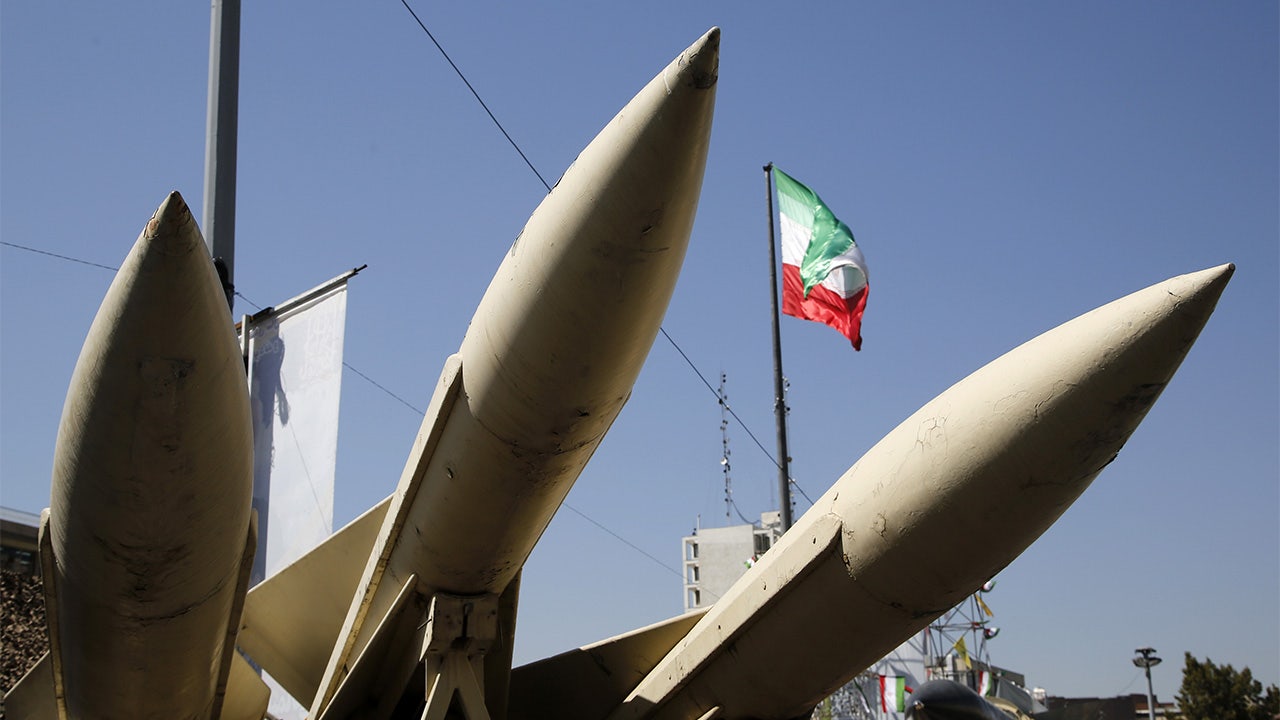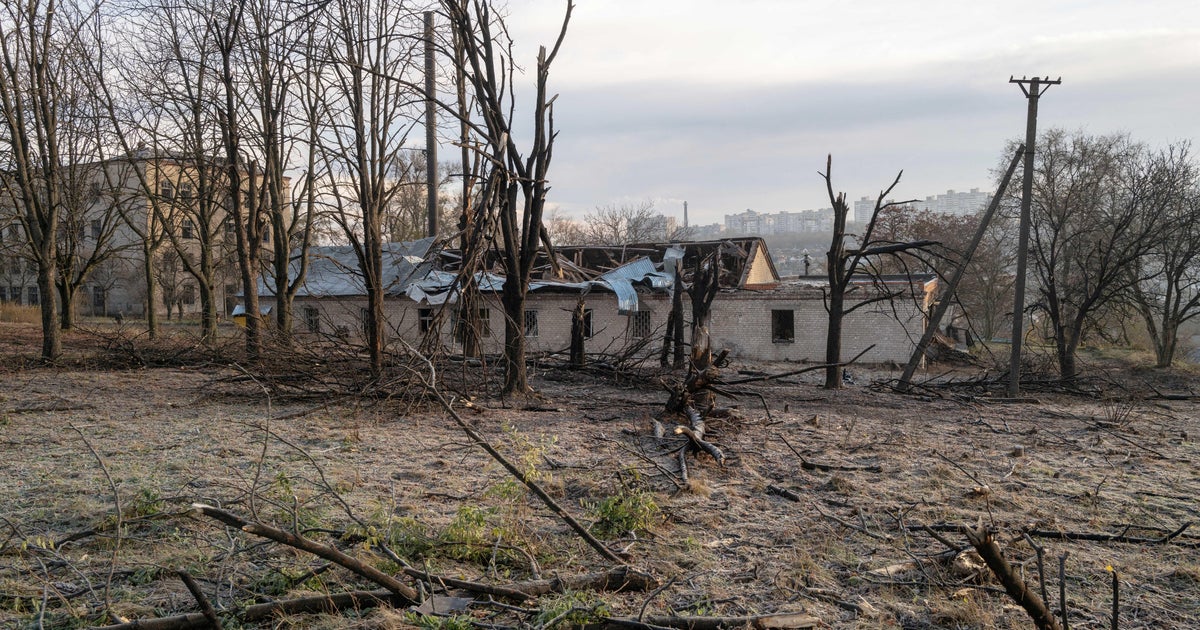World
Israel vows to hit back at Iran. Will it bomb Tehran’s nuclear sites? Can it?

Israel sees Iran as an existential threat to its existence. Iran’s clerical leaders have repeatedly threatened the world’s only Jewish state with nuclear annihilation.
Four years ago, a man widely regarded by Israeli and Western officials as the “father” of Iran’s nuclear weapons program was assassinated by what Iranian investigators later described as a “remote-controlled weapon.”
Mohsen Fakhrizadeh, a nuclear physicist and officer in Iran’s Islamic Revolutionary Guard Corps, was driving east of Tehran with his wife in the passenger seat and bodyguards in separate cars behind them when their vehicle was sprayed with bullets from a machine gun that Iran concluded had been “controlled by satellite.”
The weapon, which weighed about a ton and had been smuggled into Iran in small parts, Iran state media reported, had been attached to the back of an abandoned-looking Nissan pickup truck and then positioned at a junction on a main road the Fakhrizadehs were using to return home from their vacation house on the Caspian Sea.
The operation was over in less than a minute. No attackers were present on the ground. Fakhrizadeh’s wife and bodyguards survived. The sniper who calibrated the AI-powered machine gun’s sights and effectively pulled the trigger was thousands of miles away. The Nissan truck then exploded.
Iran’s foreign minister at the time, Javad Zarif, condemned Fakhrizadeh’s killing as an Israeli “act of state terror,” though Israel has never publicly confirmed nor denied responsibility.
But the incident has acquired new potential meaning after Israel is widely believed to have sabotaged and remotely detonated communications devices to kill and maim thousands of Iran-backed Hezbollah operatives in Lebanon. It also raises questions about whether Israel may be planning to strike Iran’s secretive and well-protected nuclear facilities. Israeli appears poised to retaliate against Iran for its volley of ballistic missiles on Israel in early October. This is itself a response to two recent assassinations that Iran blames on Israel: of Hezbollah leader Hassan Nasrallah in Beirut, and Hamas political leader Ismail Haniyeh in Tehran.
Both of their deaths have come as Israel has expanded the war in Gaza that followed Hamas’ Oct. 7, 2023, attacks on southern Israel to include airstrikes and a ground invasion aimed at Hezbollah in Lebanon, and as officials and political and military analysts caution that a year after Oct. 7 a direct Iran-Israel war is threatened in the Middle East. The Israeli ground invasion was a response to Hezbollah’s intensified firing of rockets into Northern Israel from its base in Lebanon.
“All seven of us agree that they have a right to respond, but they should respond in proportion,” President Joe Biden said last week of Israel after he agreed with the leaders of the Group of 7 countries to impose new sanctions on Iran in the wake of Its ballistic missile attack on the country. “The answer is no,” Biden added, after a reporter asked him whether he would support any Israeli decision to strike Iran’s nuclear facilities.
In a sign of increased tension between Israel and the United States, Israel on Tuesday abruptly canceled a visit at the Pentagon between its Defense Minister Yoav Gallant and Defense Secretary Lloyd Austin. Austin is likely to have reiterated Biden’s caution against striking Iran’s nuclear sites.
Does Iran have nuclear weapons?
Iran has long insisted, to much international skepticism, that its nuclear facilities are for civilian purposes only; it says it they are for its energy needs. Its officials often cite a fatwa − a legal ruling rooted in Islamic law − issued in 2003 by Iran’s Supreme Leader Ayatollah Ali Khamenei that bars the possession of nuclear weapons on religious-humanitarian grounds.
The evidence for what Iran is actually doing points in different directions.
According to the International Atomic Energy Agency, the United Nations’ nuclear watchdog, Iran has increased its stockpile of uranium enriched to near weapons-grade levels. This is in defiance of international demands and something that has accelerated in the wake of former President Donald Trump’s decision to withdraw the U.S. from a 2015 nuclear accord between Iran and world powers that the IAEA said was limiting Iran’s uranium enrichment.
Rafael Mariano Grossi, who runs the IAEA, said earlier this year that Iran has enough uranium enriched to near-weapons-grade levels to make “several” nuclear bombs if it wanted to do so.
More: Iran ‘one or two weeks’ from being able to create nuclear materials, Blinken says
The question of whether it wants to is not something that Israel has any doubts about.
Israeli officials, including its current Prime Minister Benjamin Netanyahu, have been saying for years that Iran is a year away, months away, maybe even a few weeks away from producing a nuclear weapon. This is something Israel says it can’t and won’t tolerate because it sees Iran as an existential threat to its existence. Not least because Iran’s clerical leaders have repeatedly threatened the world’s only Jewish state with nuclear annihilation.
“Israel has now its greatest opportunity in 50 years, to change the face of the Middle East,” Naftali Bennett, a former Israeli prime minister who describes himself as a hardline nationalist, recently wrote on social media. “We must act *now* to destroy Iran’s nuclear program, its central energy facilities, and to fatally cripple this terrorist regime.”
Still, on Monday, CIA Director Bill Burns said that while it was clear that Iran has developed the “means of delivery” for a potential nuclear weapon by building up its missile arsenal, “we do not see evidence today that the supreme leader has reversed the decision that he took at the end of 2003 to suspend the weaponization program.”
Iran, in other words, according to Burns, may have technically halted its explicit work on nuclear weapons in 2003, but it has continued to acquire nuclear technology and expertise that is a requirement for any such program.
Related: Netanyahu vows to continue Hezbollah attacks, rails against Israel’s critics in UN speech
How will Israel respond to Iran’s ballistic missile attack?
A person familiar with the matter previously told USA TODAY that Israel is still consulting with the U.S. about how it might respond to Iran. Various reports have circulated as to what it might target. Among the options: Iran’s military bases, its oil and economic infrastructure, key leaders in the Iranian regime and, perhaps the riskiest of all, nuclear sites.
Still, Israel’s killing Sept. 27 of Hezbollah leader Hassan Nasrallah by heavy bombing may be “proof of concept” for Israel to target Iran’s deeply buried nuclear facilities, according to a former Air Force intelligence officer.
Israel dropped a series of what are believed to have been 2,000-pound bombs on Nasrallah’s hideaway near Beirut. By hitting the same target repeatedly, the Israeli air force succeeded in destroying Nasrallah’s protective bunker.
It’s a tactic that might work on Iran’s nuclear facilities, hidden deep in mountainous desert areas.
Destroying those buried facilities is a “weaponeering challenge like none other,” said Scott Murray, a retired Air Force colonel with extensive experience targeting U.S. adversaries in the Middle East.
Iran’s nuclear site at Natanz, in the country’s arid Central Plateau, for instance, looks like a big pile of dirt, he said.
Murray stressed that he was not referring to current intelligence estimates but relied on his own experience. Buried, fortified targets are among the most difficult to destroy, he said.
A 30,000-pound bomb encased in steel
The U.S. Air Force would likely rely on one of its largest conventional weapons to destroy such a site. The GBU-57, or “Massive Ordnance Penetrator,” is a 30,000-pound bomb encased in steel that allows it to burrow deep into the earth before exploding. Israel, as it did to kill Nasrallah in Beirut, would have to rely on a series of smaller bombs striking the same spot. In Beirut, the Israeli air force dropped 2,000 bombs repeatedly into the same hole, Murray said. “It’s a similar problem in Iran, and the Israelis have demonstrated successfully that they can do it,” he said.
A key difference is that, unlike Lebanon, Israeli pilots would face surface-to-air missile defenses in Iran.
“It will be ten times more difficult,” he said.
Israel weighs its options, and timing
If Israel does decide to go after Iran’s nuclear facilities, which many experts on Iran and current and former officials see as unlikely, it could have impacts that go beyond military ones.
“In the process, Israel risks causing nuclear contamination as some of these facilities are close to population centers,” said Ali Vaez, the Iran Project Director at Crisis Group, a Brussels-headquartered think tank. “It also exposes itself to an Iranian attack on Dimona, which could cause an environmental disaster in Israel.”
Dimona is an Israeli nuclear installation located in the Negev desert.
Vaez said that an Israeli strike on Iran’s nuclear program would also be “bound to push Iran to withdraw” from the Nuclear Nonproliferation Treaty, which has been in force since 1970, and “dash toward the ultimate deterrent given that its conventional and regional deterrence have clearly proven insufficient to protect its homeland.”
Iran has threatened to escalate its attacks against Israel if it comes under attack and it has characterized its nuclear and energy facilities as “red lines,” without elaborating.
In fact, according to a 2022 week-long simulation involving 30 leading Iran and Middle East experts, any attempt by Israel to strike Iran’s nuclear facilities, regardless of whether it is deemed successful, unsuccessful or even partially successful would only serve as a catalyst to further nuclear proliferation by Iran. It would also likely, according to Wikistrat, the Israel-based security and global risks consultancy that hosted the simulation, spur Iran’s regional competitor Saudi Arabia to accelerate its nuclear program and see Russia and China further drawn into the region to take a more active role in Iran’s defense by supplying it with advanced defensive capabilities.
Oren Kesler, Wikistrat’s CEO, said he did not think Israel would target Iran’s nuclear facilities because hitting them with bombs, no matter how powerful, would not be sufficient to dismantle them. He said any bombing campaign would need to be supplemented with ground operations by special forces and this would require Israel to “reallocate its military power” from other areas such as Lebanon at a time when it forces are being stretched on other fronts.
However, Kesler said there are other things Israel may be considering as it decides what to do next.
“The answer is one word: ‘time,'” he said.
“In the Middle East, you cannot deny the impact time has. Sometimes it’s the best result you can get. Israel’s not going to destroy Iran’s nuclear program. It may be able to postpone it, though. And with time, you can build capabilities. You can make new alliances. You need to ask yourself, what happens if tomorrow the leadership changes in Iran? Who’s to say Iran later on won’t decide to move away from a policy of brinkmanship?”









